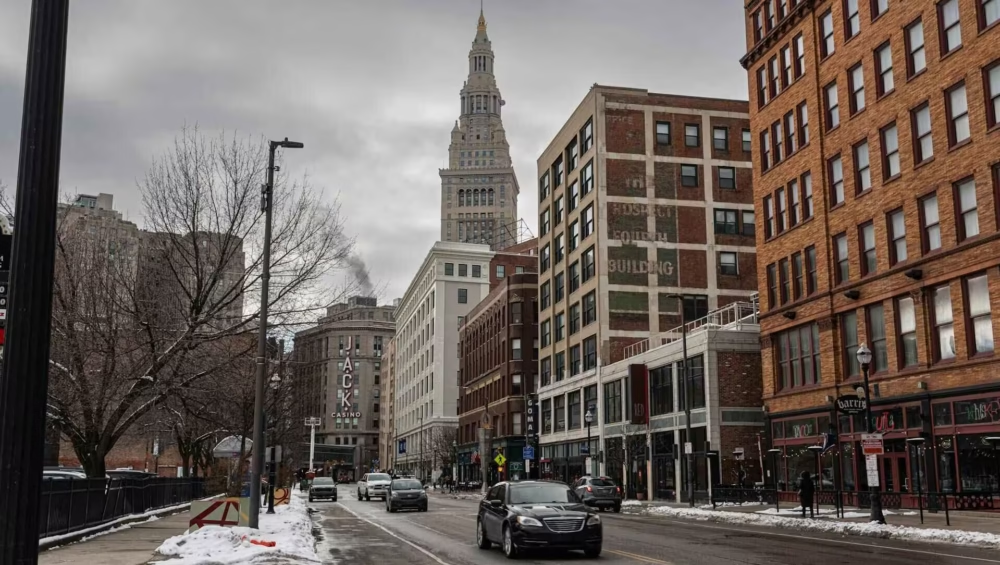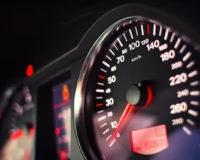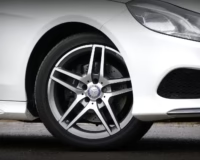Driving through a Cleveland winter is no small feat. Between the lake effect snow, freezing temperatures, and roads that seem perpetually covered in salt and slush, your vehicle takes a serious beating from November through March. As someone who’s spent years helping drivers navigate Northeast Ohio’s challenging winter conditions, I’ve seen firsthand how proper tire and brake maintenance can make the difference between a safe commute and a roadside emergency.
The Real Deal on Winter Tires
Most Cleveland drivers know they should probably have winter tires, but many still try to stretch their all-seasons through the cold months. Here’s the truth: once temperatures consistently drop below 45°F, those all-season tires start losing their effectiveness. The rubber compound becomes stiffer and less able to grip the road, especially on the snow and ice we see throughout the Cleveland area, from Mayfield Heights to Lakewood.
Winter tires use specialized rubber compounds that stay flexible in freezing temperatures. They also feature tread patterns specifically designed to channel snow and slush while providing better grip on icy surfaces. For Cleveland’s variable winter conditions, these aren’t luxury items—they’re essential safety equipment.
One of the most overlooked aspects of winter tire maintenance is proper inflation. Cold air causes tire pressure to drop significantly. A properly inflated tire in October might be dangerously underinflated by December, leading to poor handling, reduced fuel economy, and increased risk of a blowout. Most vehicles lose about 1-2 PSI for every 10-degree drop in temperature, so regular pressure checks are crucial throughout the winter.
Why Your Brakes Deserve Extra Attention in Winter
Your braking system faces unique challenges during Cleveland winters that many drivers don’t consider until they’re sliding toward an intersection. Road salt is particularly damaging—it accelerates corrosion on brake components, which can lead to premature wear and reduced stopping power. The moisture from snow and slush can work its way into brake lines and components, potentially freezing or causing rust that impacts braking performance.
Winter driving also means more frequent braking on slippery surfaces, putting additional stress on your brake pads and rotors. This is why so many Cleveland drivers find themselves needing brake service in early spring—the winter months have taken their toll.
Pay close attention to warning signs that your brakes need attention during winter. Any unusual noises like squealing or grinding when you brake should be addressed immediately. If you feel vibration through the brake pedal, notice your vehicle pulling to one side when braking, or experience a “spongy” brake pedal, don’t wait to get your brakes checked. These symptoms often worsen in winter conditions and can lead to brake failure when you need them most.
Winter Essentials: Your Quick Guide to Vehicle Safety
When Cleveland winter hits hard, here’s what your vehicle truly needs to stay safe and reliable:
Tire Essentials:
- Winter tires with proper tread depth (at least 6/32″) for any vehicle driven regularly
- Tire pressure checks every two weeks (cold temperatures reduce pressure)
- Wheel alignment check if you’ve hit potholes or curbs
- Spare tire or emergency flat tire service contact saved in your phone
- TPMS sensors functioning properly to alert you of pressure issues
Brake Essentials:
- Brake fluid check and top-off before temperatures drop below freezing
- Brake pad inspection (replace when less than 4mm remains for winter driving)
- Rotor inspection for warping or excessive rust that affects stopping power
- Caliper lubrication to prevent freezing or sticking in extreme cold
- Professional brake system flush if fluid appears dark or contaminated
Emergency & Specialized Services:
- Mobile service provider saved in your contacts for emergency tire situations
- Wheel lock key stored in a memorable location (or professional removal service contact)
- Fleet-specific maintenance schedule adjusted for winter conditions
- Brake and tire inspection before and after extreme cold snaps
The most important thing to remember is that preventive maintenance before winter hits will almost always cost less than emergency service in freezing conditions. Cleveland winters don’t wait for convenient timing—neither should your vehicle maintenance.
The Game-Changer: Mobile Tire and Brake Services
One of the biggest headaches of winter maintenance is actually getting to the shop. Driving on bad tires or compromised brakes to reach a service center is both inconvenient and potentially dangerous. This is where mobile tire and brake services have transformed winter maintenance for many Cleveland area drivers.
Having a qualified technician come to your home or workplace means you don’t have to venture out on hazardous roads. While your vehicle is being serviced right in your driveway or parking lot, you can continue with your day rather than sitting in a cold waiting room. The personalized service also means direct communication with the technician working on your vehicle, often resulting in a better understanding of your specific maintenance needs.
Smart Seasonal Maintenance Approach
The key to keeping your vehicle safe through Cleveland winters is staying ahead of maintenance issues rather than reacting to problems after they occur. In early fall, before the first snowfall, have your brakes thoroughly inspected and consider installing your winter tires. This proactive approach ensures you’re prepared for early season snow and ice.
Throughout winter, regularly check your tire pressure at least twice monthly—preferably when the tires are cold for the most accurate reading. Keep an eye on your TPMS (Tire Pressure Monitoring System) if your vehicle has one, but don’t rely on it exclusively, as some systems only alert you when pressure is dangerously low.
If you do experience a flat tire or other emergency during Cleveland’s harsh winter months, having a reliable mobile service on speed dial can be a lifesaver. Emergency roadside tire assistance is particularly valuable when you’re stranded in cold conditions, where waiting for traditional tow services can be not just inconvenient but potentially dangerous.
As we move toward spring, prepare for a seasonal tire changeover and address any winter-related brake issues before they evolve into more serious problems. Consider a brake fluid flush if you suspect moisture contamination, which is common after months of winter driving.
Winter driving in Cleveland can be challenging, but with proper attention to your tires and brakes, you can navigate even the worst conditions safely. Investing in good winter tires, maintaining proper inflation, and addressing brake issues promptly will not only keep you safer on the road but save you money on more extensive repairs down the line. And remember—when the weather outside is frightful, mobile service makes maintenance delightful.





